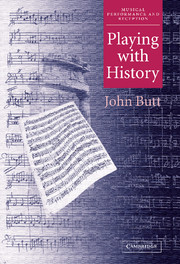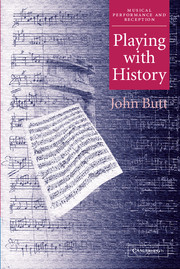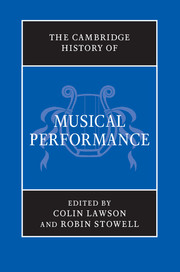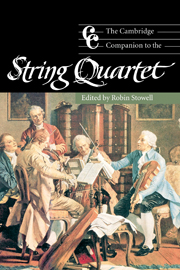A Concise History of Western Music
Engaging, clear and informative, this is the story of western music - of its great composers and also of its performers and listeners, of changing ideas of what music is and what it is for. Paul Griffiths shows how music has evolved through the centuries, and suggests how its evolution has mirrored developments in the human notion of time, from the eternity of heaven to the computer's microsecond. The book provides an enticing introduction for students and beginners, using the minimum of technical terms, all straightforwardly defined in the glossary. Its perspective and its insights will also make it illuminating for teachers, musicians and music lovers. Suggestions for further reading and recommended recordings are given for each of the 24 short chapters.
- An accessible and originally-written history of classical music
- Makes minimal use of technical terms, all of which are explained in the text and glossary
- Provides the reader with perspective on great works and great composers
Reviews & endorsements
"Centered on the conceptualization of time in music, Griffiths' precis traces a course of development from ancient Greece and Babylonia to the present...A well-written must for classical-music listeners and teachers."
-Booklist
"One of the UK's most eloquent and intelligent writers on classical music, Griffiths' A Concise History of Western Music (concise maybe, but substantial enough to merit every one of its 350 pages) is a joy."
-The Book Depository
"Hidden behind the deadpan title is an extremely rich and thoughtful text: a concise history, as it says on the tin, but also a warm meditation on the philosophy of music…Each chapter culminates in a subtle cliff-hanger, and the whole thing reads exquisitely."
-Guardian
'Anyone who can write a concise history of music deserves a medal…Paul Griffiths, adept at clear, succinct presentations, manages to reduce the millennia and centuries to just 300 pages; and, to make matters easier, he gives the terms without which the story cannot be told a brisk and lively explanation and encourages the reader to read, listen further and think…an original and a stimulating book."
-Methodist Recorder
"…(an) elegant and highly readable style…thought-provoking, compelling and remarkably comprehensive narrative…this is easily one of the most thought-provoking, enjoyable and stimulating reads on Western music to have been published in the past ten years."
-BBC Music Magazine
"The book is clearly laid out, with page heading summaries making it valuable for academic study."
-International Record Review
"...attention to the ways of the different musics of the past and present 'proceed through time' is the main novelty of this book...A Concise History of Western Music [is] new and distinctive. This is an adroit and knowing book..."
-Joseph Kerman, The New York Review
Product details
July 2006Hardback
9780521842945
360 pages
218 × 149 × 27 mm
0.611kg
Available
Table of Contents
- Prehistory
- Part I. Time Whole:
- 1. From Babylonians to Franks
- Part II. Time Measured 1100–1400:
- 2. Troubadours and organists
- 3. Ars nove and Narcissus's clock
- Part III. Time Sensed 1400–1630:
- 4. Harmony, the light of time
- 5. The radiance of the High Renaissance
- 6. Reformation and heartache
- 7. To speak in music
- Part IV. Time Known 1630–1770:
- 8. Baroque mornings
- 9. Fugue, concerto and operatic passion
- 10. Rococo and reform
- Part V. Time Embraced 1770–1815:
- 11. Sonata as comedy
- 12. Revolution's momentum
- Part VI. Time Escaping 1815–1907:
- 13. The deaf man and the singer
- 14. Angels and other prodigies
- 15. New Germans and old Vienna
- 16. Romantic evenings
- 17. Nightfall and sunrise
- Part VII. Time Tangled 1908–75:
- 18. To begin again
- 19. Forwards and backwards, and sideways
- 20. The people's needs
- 21. To begin again again
- 22. Whirlwind
- Part VIII. Time Lost 1975–:
- 23. Echoes in the labyrinth
- 24. Interlude
- Glossary
- Further reading and listening.






